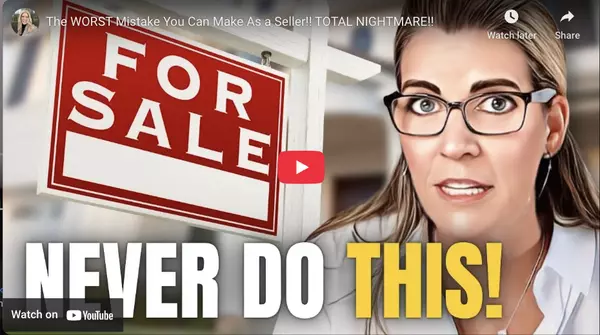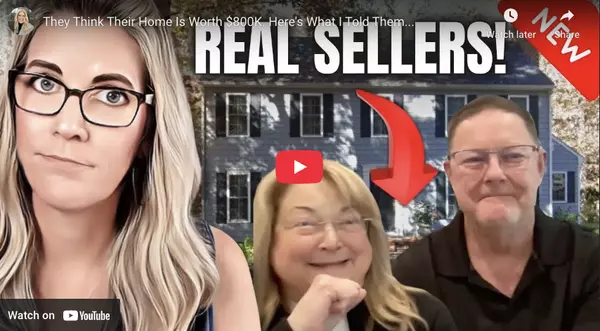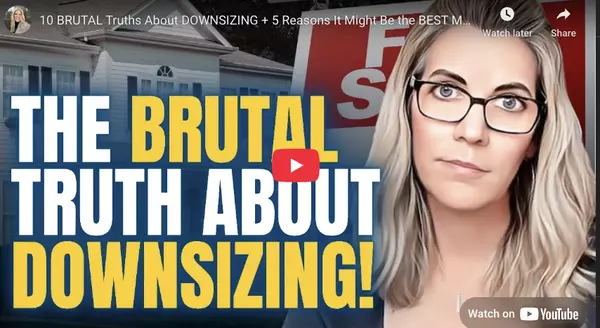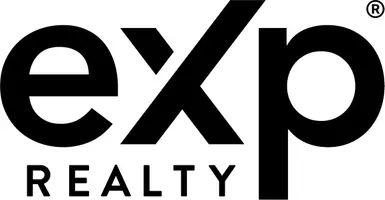If you've been watching YouTube or following the news lately, you might be seeing some truly alarming headlines about the real estate market. Words like "crash," "bubble," and "collapse" are being thrown around left and right. It's enough to make anyone panic, especially if you're a homeowner or thinking about selling. But before you start hyperventilating into a paper bag, let's take a step back and really analyze what's happening.
The Clickbait Craze: Are We Really in Trouble?
First things first: those scary headlines? A lot of them are pure clickbait. Yes, it's true that many of these videos are racking up millions of views, but just because something gets attention doesn't mean it's accurate. A headline proclaiming "80-90% of a home's value is lost!" sounds terrifying, but is it really happening?
As a real estate agent, I can tell you that this kind of claim is, at best, a massive exaggeration and, at worst, completely misleading. I'm not seeing home values plummet anywhere close to that in the markets I work in. So why are these videos gaining so much traction? Simple: fear sells.
Understanding the Market: What's Really Happening?
Let’s clarify a few things. A housing market crash typically refers to a significant and rapid decline in home values, usually more than 20%. Yes, some markets are seeing a bit of a softening, but this is far from a full-blown collapse.
One real issue that has affected the market in recent years is the rise of institutional investors buying up single-family homes to rent them out. This practice has driven up prices and reduced the availability of homes for regular buyers, particularly first-time buyers. But this doesn't mean that the sky is falling. It just means the market is evolving in ways that can be challenging for some buyers and sellers.
Local Markets vs. National Trends
One of the biggest mistakes you can make as a seller is to get caught up in national headlines without considering what's actually happening in your local market. Real estate is highly local, and what’s true in one area may not apply to another.
For instance, in Illinois and Florida—two states where I work—the markets are quite different. In Florida, we’re seeing some softening, particularly in the condo market, partly due to rising insurance costs and property taxes. However, in Illinois, especially in the Chicagoland area, the market is more stable, though inventory remains low.
The Impact of Interest Rates
High mortgage rates are another factor currently affecting the market. Many potential sellers are holding off because they have a low mortgage rate and don’t want to trade that for a higher one, even if they downsize. This has led to a tight inventory, which in turn has kept home prices high.
However, the Federal Reserve has hinted that interest rates might start to come down later this year or next. If that happens, we could see a surge in buying activity as homes become more affordable, which could stabilize or even push prices up in certain markets.
The Bottom Line for Sellers
If you’re thinking about selling, the best advice I can give you is this: don’t panic. Yes, the market is in a state of flux, but it’s not collapsing. Instead of focusing on the scary headlines, focus on what’s happening in your local market. Talk to a knowledgeable real estate agent who can give you the inside scoop.
Remember, your home is more than just an investment. It's where you've lived, made memories, and perhaps raised a family. If you're planning to sell, do so when it makes sense for you—not just because the news is telling you to panic.
And if you're not selling, stop checking your home’s value daily! Instead, focus on maintaining and improving your property so that when you do decide to sell, you'll be in the best possible position.
Final Thoughts
The real estate market is always changing, and while we might be in a period of uncertainty, that doesn't mean disaster is imminent. Take a deep breath, consult with local experts, and make decisions based on facts, not fear. Your home is one of your biggest assets—treat it with the care and consideration it deserves.
CLICK HERE FOR FREE SELLER'S PLAYBOOK











